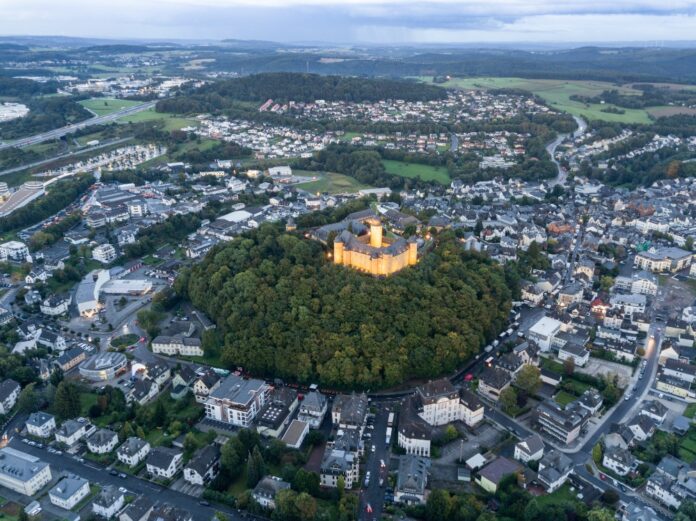The two want to connect 25 municipalities near Frankfurt with full fibre
Vodafone Deutschland has teamed up with French investor and asset manager Meridiam to provide FTTH/B access for the 25 municipalities of the community of Montabaur – and their 42,000 inhabitants – located 100km northwest of Frankfurt.
Meridiam will work with the regional authority of Montabaur – its main town features a strikingly yellow castle – to build and operate the network. The newly-created NetCo “Glasfaser Montabaur GmbH & Co” will connect 11,200 buildings representing 17,000 households in Montabaur.
Earlier this week, Meridiam closed the financing of several FTTH networks in Germany. The long-term 30-year bond financing will enable the deployment of more than 90,000 homes passed in seven German municipalities.
In addition, Meridiam announced a wholesale arrangement with Vodafone to deploy FTTH networks across different municipalities in Germany outside of Vodafone’s existing gigabit cable footprint. Under the partnership, Meridiam has begun deploying fibre in seven underserved regions, reaching homes currently without access to gigabit connectivity, and expects to be completed by the end of 2024.
Long-term finance game
Meridiam is quick to point out that this work with Vodafone is different to more commonplace shorter-term debt being raised for such project. This project will instead be financed through a 30-year long-term bond, amounting to around €100m, exclusively arranged by MEAG (subsidiary of German re-insurer Munich Re) on behalf of institutional investors.
Meridiam started its fibre strategy in 2020 and, since then, has invested close to €2bn in Germany, Austria, Romania and North America. Germany has among the lowest FTTH penetration rates in Europe, with rural and semi-rural areas particularly underserved.
Meridiam therefore aims to deploy FTTH networks for 500,000 homes passed in underserved areas over the next five years, and Vodafone will market gigabit broadband to these potential customers.
Montabaur rollout
The build-out is split into 18 clusters, with six clusters to be built each year between 2021 and 2023. Meridiam is responsible for the financing, construction and maintenance of the network, while Vodafone will operate it. The project aims to reach 100% coverage in the target area – which Meridiam points out is a unique approach in Germany that it expects to raise attention among public authorities and market participants.
Vodafone is the anchor tenant, under a 30-year contract, and will offer a full range of services to business and residential customers. Under the open access obligation, Vodafone also provides an offer to other ISPs for marketing their respective services on the network. The contract between GFM and Vodafone has a duration of 30 years.
Competitor Deutsche Telekom only relatively recently began accelerating its efforts to lose the tag of Europe’s greatest laggard in the fibre stakes. Ironically, DT’s Austrian opco Magenta Telekom has itself partnered up with Meridiam to fibre up that country.



